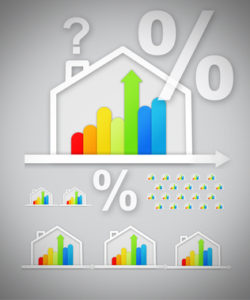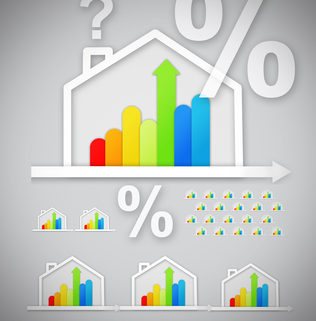Denver Housing Bubble – Fact or Fiction?


Is the Denver housing market is in danger of a bubble? If someone you know has purchased a home in the Denver metro area this past year, you will certainly have heard about skyrocketing home prices, bidding wars, and properties often selling for higher than the asking price. Considering that the home prices have quickly been rising while our nation’s economy still feels shaky, this is an understandable concern.
As with any bubble, real estate, stock market, or otherwise, a bubble can only be predicted in hindsight. We don’t know where the peak (or the crash, for that matter) will hit, until we are past the hump or slump.
It’s worth mentioning that the Denver real estate market was not as negatively affected as many parts of the United States during the recession. The subprime mortgage game wasn’t as prevalent in Denver, our economy remained stronger than many major cities, and our percentage of foreclosures was considerably lower. The Case-Shiller Denver Home Price Index reported that metro Denver home prices have met and exceeded the pre-crash peak in 2013.
Much of the price appreciation has been due to the drop in interest rates. During the recession, interest rates have been at an all time low, in the Fed’s attempt to keep money in the system and create more consumer confidence in home-buying. Whether the attempt was psychological or not, when you buy at a low interest rate, as long as you can make your mortgage payments, you will greatly benefit in the long run by saving a boatload of money throughout the years on interest.
Denver, depending on which statistics you read, historically has had a 5% appreciation on home values. (I have seen statistics reporting this number as high as 9%, but for sake of being conservative, I will report the lowest number I have seen.) Most investments won’t yield more than 10% per year on average, and let’s face it – you can’t host a holiday party in your mutual fund.
Overall, the Denver economy is pretty strong. Even if home prices drop for a bit, they most likely will recover and continue to rise. Our state’s population has grown at almost double the national rate over the past few years. State Demographer, Elizabeth Garner, states that of this growth, 55-60% of people are moving here due to a job change, indicating that Colorado is showing job growth. Also, many young families are eschewing the coastal cities for Denver for lower taxes, lower cost of living, access to parks, and sunny days. The Denver economy continues to grow with diverse industries – natural gas, mutual funds, clean energy, technology, and well… marijuana.
So, what do I recommend? If you’re financially and emotionally ready to purchase a home, do so. Interest rates are still low enough that even if home prices drop after you buy, you will still save money in the long run. The Denver economy has remained strong and shows no indicators of slowing down. The population keeps growing in Denver, and increasing demand for homes will keep prices up.
If you think you may be ready to talk a real estate professional about purchasing or selling your home, please contact Allison Parks at Conscious Real Estate at 303-908-9873 or [email protected].










A reliable blog always comes-up with new and exciting information and while reading I have feel that this blog is really have all those quality that characterize a blog to be a best one.
Wife and I moved here a year ago, economy in FL was horrible and Colorado offered a great job with a huge pay increase. I totally agree with the writer in regards to " access to parks, and sunny days." However cost of living is not cheaper in this state…sales tax for one is insane and don't get me started on registering a car in CO (2014 Chevy = $660 a YEAR!)…also rent prices are on the rise. I definitely think this is another bubble and plan on waiting a few years until housing prices get realistic. Keep up the great blog!
Prices certainly may go down, although barring anything so major in our national economy that it seriously affects our local economy, I don't expect a big drop. I wouldn't be surprised to see a plateau at some point, but our local economy is kicking butt right now through diverse industries that are not expected to drop. A home is a commodity, like any other. Considering that rental prices are on the rise and that rent prices are generally still higher for comparable properties than a mortgage payment, your money is still likely safer if one were to purchase. If prices drop —> don't sell during that time unless you absolutely have to. Factor in "rainy days" and even "life catastrophes" when purchasing a home and remain conscious to not over-extend yourself financially, so you may continue to pay your mortgage in the event of illness or loss of a job.